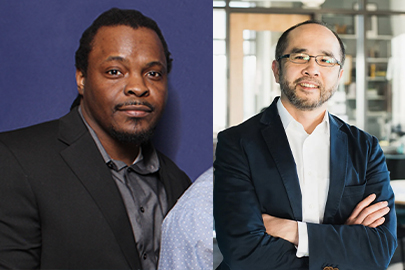 The restoration of access to New York’s need-based Tuition Assistance Program (TAP) for college-in-prison is monumental. Receiving an education behind bars permanently changed my life in many ways. A year into receiving my associate degree through the Bard Prison Initiative, there was no doubt in my mind that I could continue my education further to obtain my Master’s degree. College-in-prison gave me the confidence that I needed to change my life. The liberal arts curriculum opened my worldview and gave me fresh, new perspectives on society and my place in it. I didn’t see society from the same parochial lens I once had. Critical thinking about our different sectors of society enabled me to discover my passion in life—rebuilding our eroding social infrastructure.
The restoration of access to New York’s need-based Tuition Assistance Program (TAP) for college-in-prison is monumental. Receiving an education behind bars permanently changed my life in many ways. A year into receiving my associate degree through the Bard Prison Initiative, there was no doubt in my mind that I could continue my education further to obtain my Master’s degree. College-in-prison gave me the confidence that I needed to change my life. The liberal arts curriculum opened my worldview and gave me fresh, new perspectives on society and my place in it. I didn’t see society from the same parochial lens I once had. Critical thinking about our different sectors of society enabled me to discover my passion in life—rebuilding our eroding social infrastructure.
My first day of college was surreal and comforting. I can remember the feeling of having a sense of control over my future. Before that day, I had felt that all the odds were against me. As a prisoner, one knows that finding employment upon release is slim, but having a college degree changes those odds. I felt the security of knowing that if I worked hard, I would have not only a better chance of employment with a degree, but also a stepping stone to continue my education if I chose to. I felt relieved that I would be able to think about things other than what was going on within the prison. I knew then that I had a place to expand my mind and consistently have stimulating conversations. I was nervous in a sense because I knew my life was going to change.
After having the opportunity to make use of my critical thinking tools every day through Bard, I’ve discovered that education is imperative to one’s mental health. Specifically, the academic opportunity to be able to think, contemplate, and make autonomous decisions. The restoration of access to TAP grants for people in prison is a victory for incarcerated individuals’ mental health in addition to all the other benefits of a college education, and its reinstatement should be rightfully celebrated.
The day I received my degree gave me one of the most accomplished feelings of my life. I never imagined that I would be a college graduate in any sense. I understood at that point that regardless of still being incarcerated, with my college degree my life was going to be good. I felt relieved. My accomplishment behind bars made me feel like I had a chance to chase my dreams. Receiving my degree also gave my family relief and changed my friends’ perspectives toward me. I could see in their faces and in our conversations that after my graduation, they felt confident in my future. My friends know that the educational trajectory I started while incarcerated has changed my life path.
My perception of society changed due to the course materials and conversations we had in class. Understanding how society is structured, from the capitalist society we live in, to the world histories of all eras and civilizations, enabled me to understand my position in society, and how I can contribute to helping the community I live in upon my release. Today, I am a proud committee board member of Queens County’s 5th district, six months post-incarceration.
Adam Bloom came home six months ago after 14 years of incarceration. He is currently a community board representative for Queen’s 5th district while finishing his bachelors degree, working as a fitness coach, and managing a rental property.



